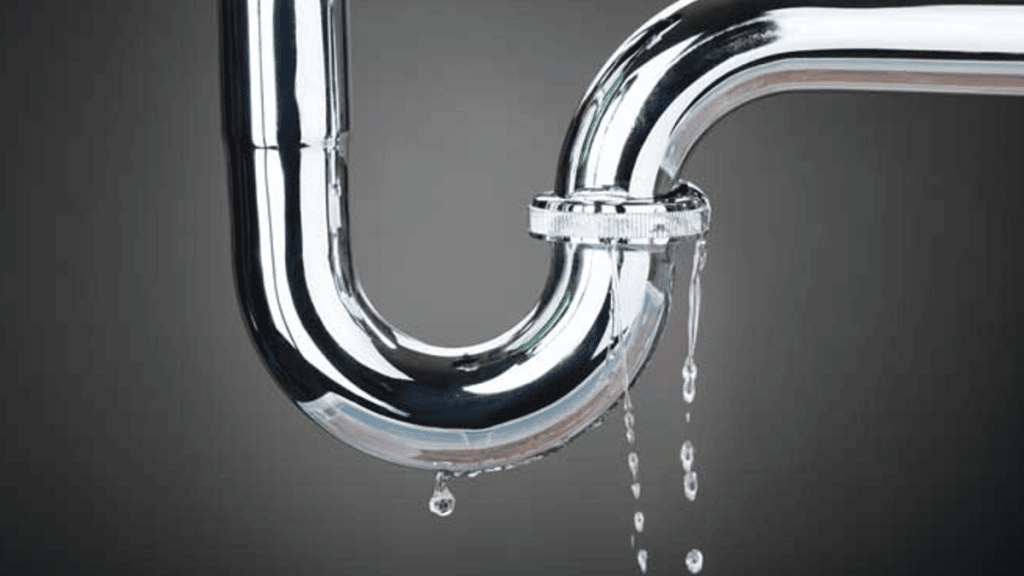A leak can happen anywhere in your home–in; the kitchen, the bathroom, or the basement. If you have a water leak, it is essential to find and fix it as soon as possible. Water leaks can cause extensive damage to your home and be expensive to repair. That’s where leak detection comes in. Leak detection is the process of finding a water leak in your home. But how does leak detection work? Let’s take a closer look.
What is a Leak Detection System?
A leak-detecting system monitors a pipeline’s water flow. The device shuts off the water supply to the house by closing an inside valve when aberrant behaviour is identified. If you have sinks and other water-providing sources in various parts of your home, installing a system for finding leaks must be your priority. In case of leaks, it will stop water flow from all fixtures and appliances that use water, regardless of the issue, safeguarding your entire house from costly and disastrous damage.
A leak detection system will promptly detect the increase in water whether a toilet flapper gets blocked, a tub is left running for an excessive amount of time, or fitting bursts behind a wall. Because leak detection systems are programmable, you may alter the shut-off settings to match the water usage patterns in your home. They can also connect to smartphones through an app, which notifies you when it notices an uneven water flow. It allows you to remotely protect your property whether at home, away at work, or on vacation thousands of kilometres away.
The WiFi connectivity of most leak-detection devices allows you to monitor your water usage in real-time. When a leak occurs, the leak detectors will alert you via an app and stop the water flow before it becomes a significant problem. Although the leak detection systems include smart valves that shut off the water supply promptly when they detect flooding, the real-time tracking provides helpful information about how much water your home uses. The apps for many leak detectors display both real-time and historical data. With the help of this information, you can determine which fixtures or appliances are driving up your water usage and when it is at its maximum.
Systems for finding leaks can also tell when pipes are in danger of freezing. Pipes that freeze run the risk of breaking. In addition to potentially causing floods if the pipes thaw and water flows through a damaged pipe, this could result in expensive plumbing repairs. Leak detection systems will cut off the water supply if the temperature within line sizes falls below freezing. It will continue until the temperature rises or the homeowner evaluates the risk and switches the water supply back on.
Techniques Used for Leak Detection
Licensed plumbers in Werribee can locate leaks precisely using the methods listed below so that they can swiftly fix them.
1. Acoustic Listening Device
A ground microphone is one of the fundamental instruments plumbers use to locate leaks. They can hear water trickling and escaping using sound technology, even through a layer of concrete.
2. Video Pipe Inspection
Plumbers in Werribee utilise a little camera attached to lengthy fibre optic cables for the most accurate leak detection. The camera sends images to a monitor so the plumber can observe the pipe’s interior conditions. It demonstrates where leaks occur and gives the plumber additional details to make the leak repair process more straightforward.
3. Heat Scanners
Experts who also excel as hot water plumbers in Werribee utilise scanners that detect temperature changes to listen in places that are too noisy or deep to employ acoustic hearing techniques. Temperature changes brought on by water evaporation will be visible on the scanners.
How Does Leak Detection System Work?
Leak detection systems monitor water flow through a mechanical turbine or ultrasonic waves. These leak detection devices track the water flow pattern by either sonically recording the delay or counting the number of gallons that pass through the sensor, which can also help detect blocked drains in Werribee. By identifying moisture, other leak detectors also turn off the water. These leak detection systems will activate a mechanical valve that will stop water flow if they detect moisture getting to the flooring. Leak detectors that sense moisture are appropriate for point-of-use or under-sink installations. Whole-house leak detection systems typically monitor water usage to identify potential leaks.
An impeller counts the gallons that travel through the device in mechanical leak detection systems. The impeller fan’s blades turn when water circulates through the system. The amount of water flowing through the system is measured and relayed back to it while the fan rotates. The physical tracking of the water flow is how this mechanical leak detection device operates. In a typical home, water use occurs intermittently. Constantly flowing water tells the system there is a leak in the plumbing system.
Importance of Leak Detection System
Your home’s plumbing system should have a leak detection system. Ideally, the leak detector should be placed downstream from all water-using appliances and water heaters. After the leak detection system, all water filtration systems, such as a water softener or other whole-house water filtration system, should be installed. The monitor will detect a change in water flow if the water filtration system becomes blocked or develops a leak, protecting both your home and equipment against damage.
To get the most out of the leak detection, any appliance that uses water—from your refrigerator to your showers—should come after it.
The seams of a water heater tank may rupture due to the volume of water within, or an improperly working thermostat may cause the water to overheat. The scalding water can seriously harm your belongings and cause severe floods in your garage and basement. A leak detection system should get installed before the water heater to reduce damage.
